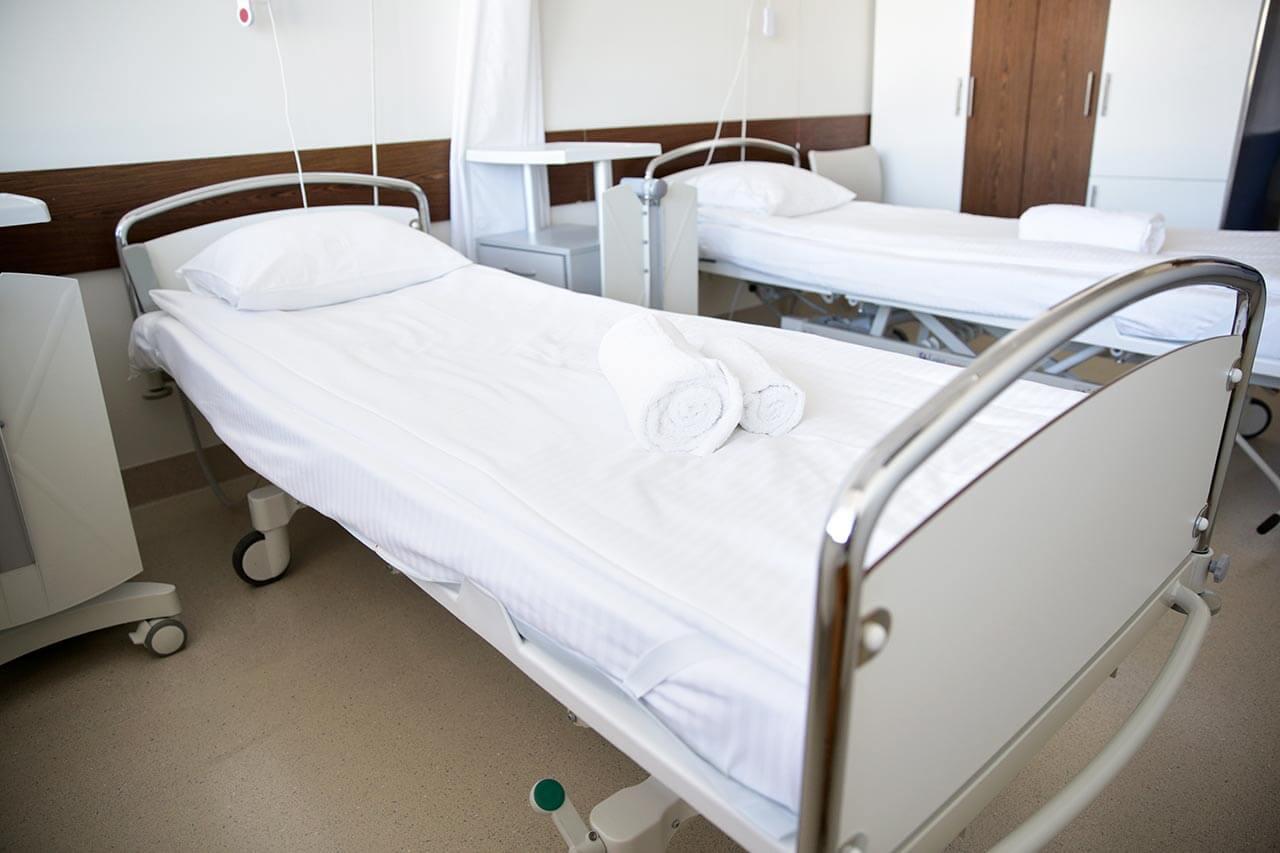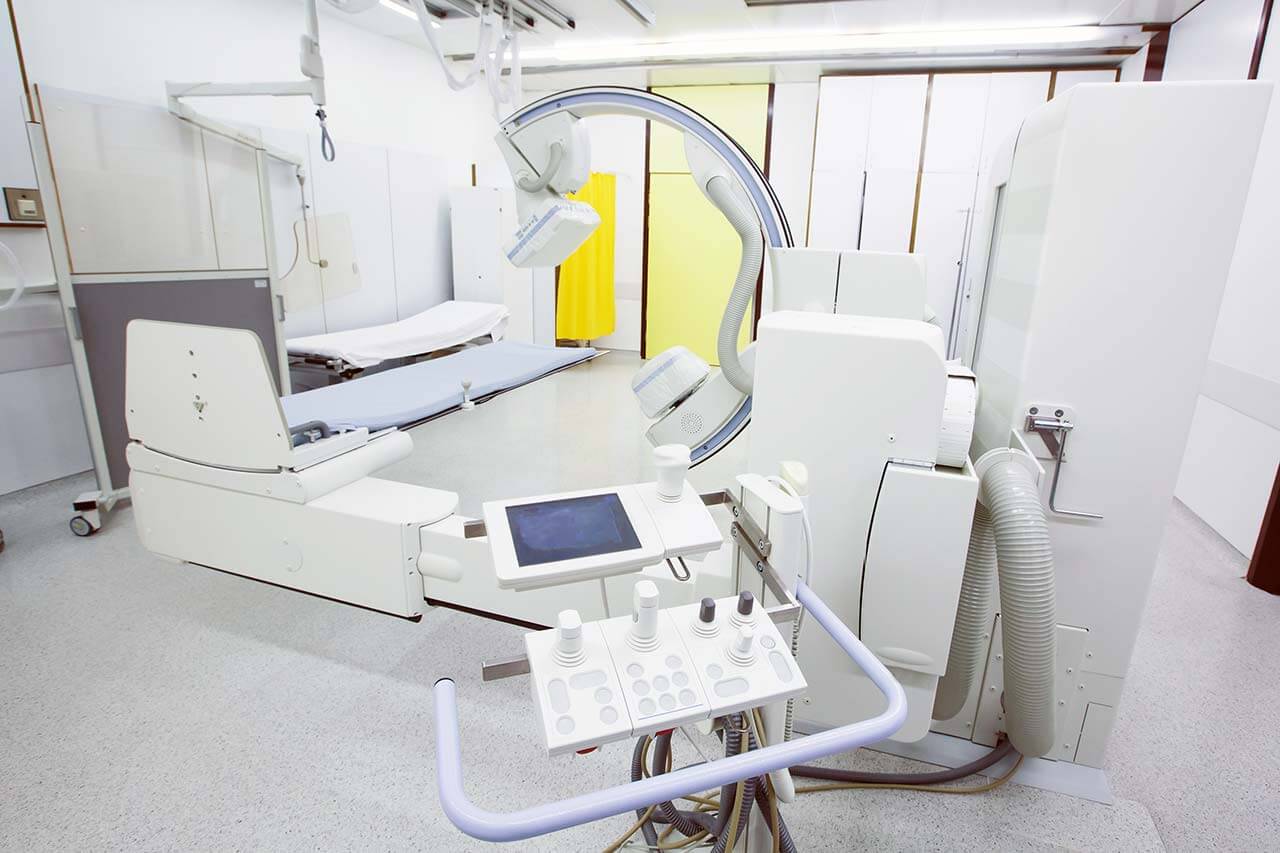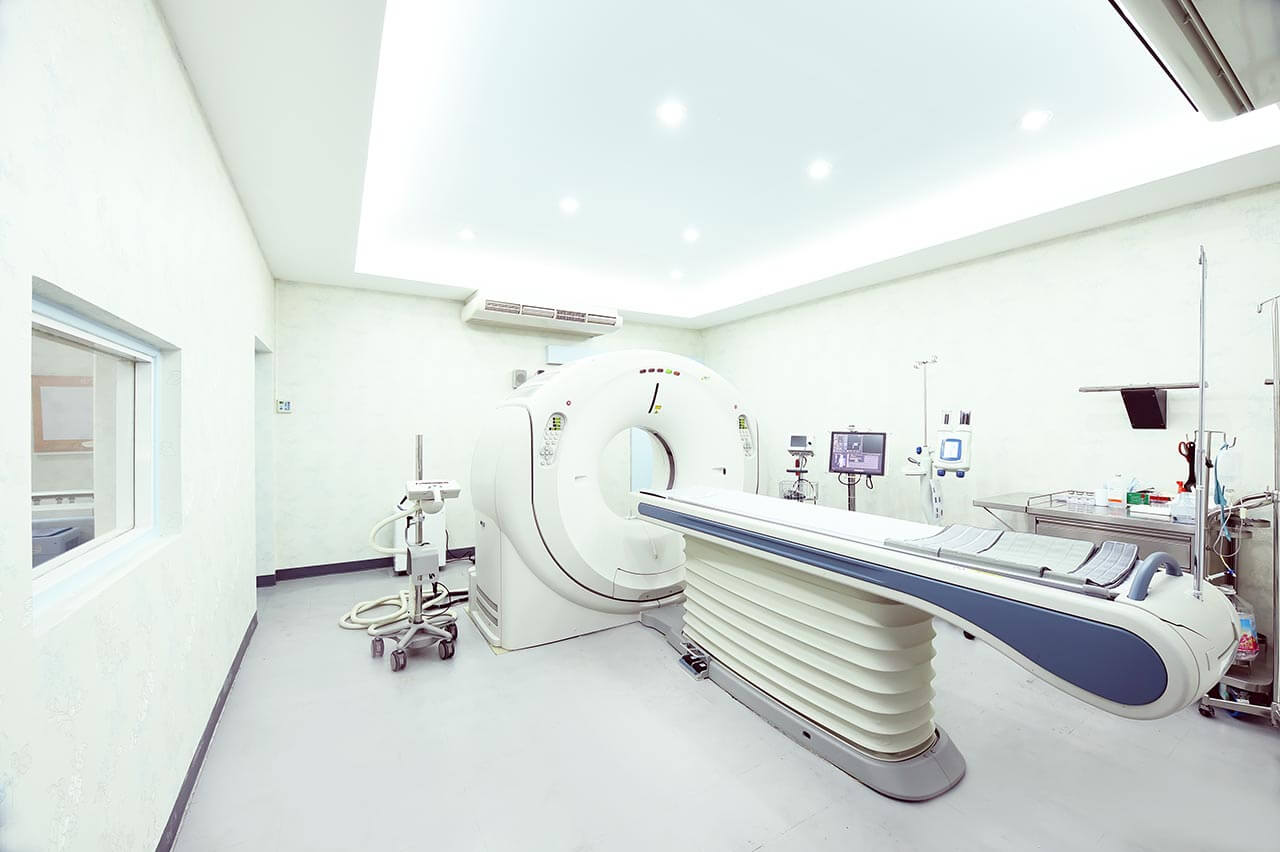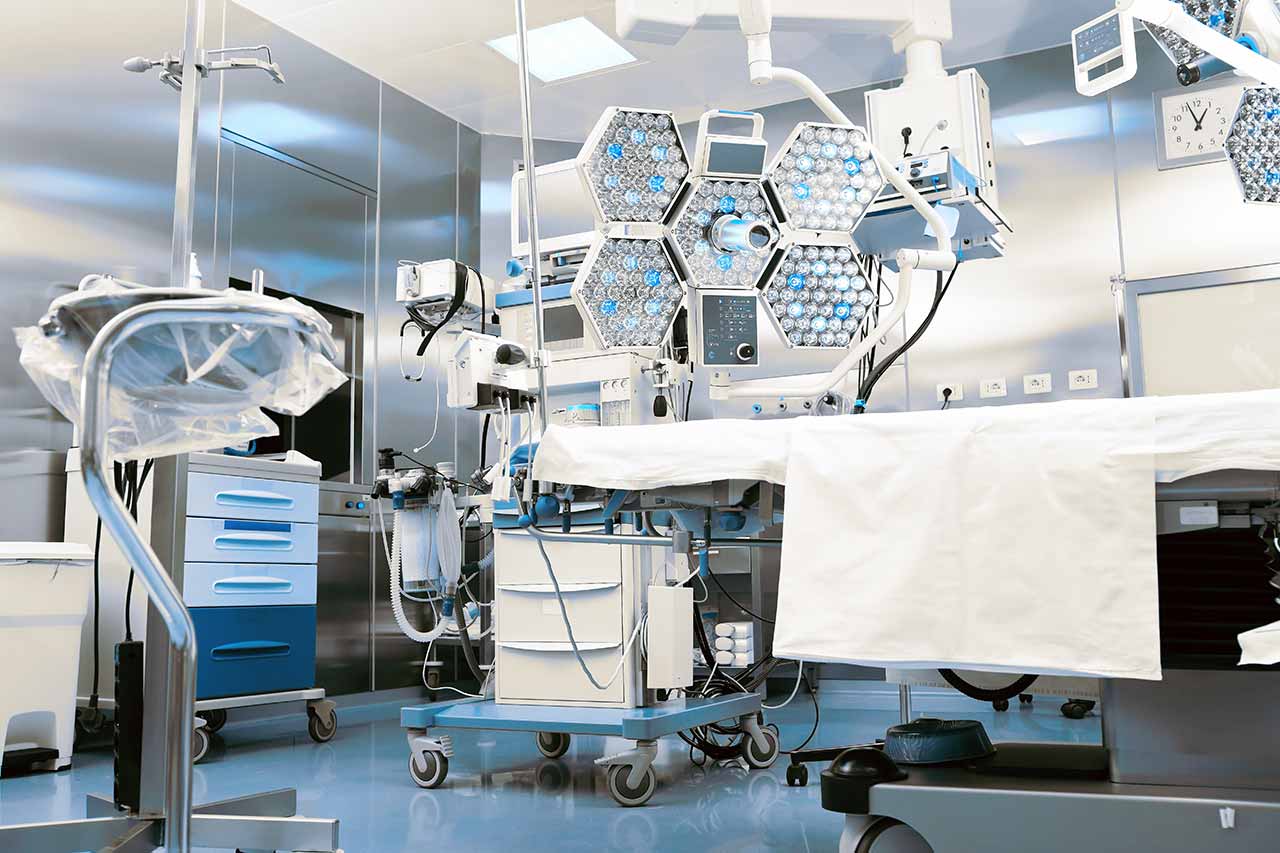
The program includes:
- Initial presentation in the clinic
- clinical history taking
- physical examination
- review of medical records
- laboratory tests:
- complete blood count
- general urine analysis
- biochemical analysis of blood
- TSH-basal, fT3, fT4
- indicators of inflammation (CRP, ESR)
- indicators blood coagulation
- abdominal ultrasound
- preoperative care
- appendectomy
- histologically examination of the remote tissues
- symptomatic treatment
- control examinations
- the cost of essential medicines and materials
- nursing services
- nutrition recommendations
- full hospital accommodation
- explanation of future recommendations
Required documents
- Medical records
- Abdominal ultrasound (if available)
Service
You may also book:
 BookingHealth Price from:
BookingHealth Price from:
About the department
According to the Focus magazine, the Department of General, Abdominal and Transplant Surgery at the University Hospital Essen ranks among the top German departments specializing in bowel cancer treatment!
The department offers the full range of services in these medical fields and enjoys the reputation of one of the leading Centers for Liver and Kidney Transplants in Europe. The priority focus of the department’s activities is oncology. The doctors of the department have high competence and rich experience in the treatment of oncopathology, including particularly complex forms. The department widely practices all modern surgical techniques. Preference is always given to sparing minimally invasive techniques that provide minimal pain, risks and speedy recovery of the patient. The department is headed by Prof. Dr. med. Andreas Paul.
Of particular interest to the department’s specialists is the treatment of pancreatic, esophageal and intestinal cancer, as well as the surgical treatment of benign diseases of all digestive organs. The department also performs a large number of operations on the endocrine organs, in particular on the thyroid gland and parathyroid glands. In the treatment of patients with endocrine pathologies, there is close cooperation with the experts in the field of endocrinology, nuclear medicine, nephrology, radiation therapy, radiology, ophthalmology, which guarantees a comprehensive approach to treatment and the most effective result.
It is worth noting that the department is equipped with the advanced surgical equipment for minimally invasive interventions. The standard treatment methods include laparoscopic gallbladder removal, liver resection, surgical treatment of gastroesophageal reflux disease, cecal removal, surgical treatment of the colon, etc.
Also, the department’s priorities include transplant surgery. The surgeons specialize in kidney, liver, and pancreas transplantation. For all the time of clinical practice, there were performed more than 3,000 kidney transplants and 1,800 liver transplants. The first liver transplantation was performed here in 1987, and the first kidney transplant in 1972. Since then, the department holds leading positions at the national and international levels. Special attention is paid to a live donor kidney transplant and a cross-donation program. The intensive care unit, which specializes in caring for patients after abdominal interventions, provides optimal treatment of very severe surgical cases, as well as monitoring of patients with liver failure and patients after organ transplants.
The service range of the department includes:
- Surgical treatment of esophageal and stomach diseases
- Benign diseases
- Gastroesophageal reflux disease (reflux esophagitis, Barrett's esophagus)
- Diverticulum (Zenker's diverticulum, epiphrenic diverticulum)
- Esophageal achalasia
- Benign tumors
- Traumatic injuries (for example, perforation)
- Malignant diseases
- Adenocarcinoma
- Squamous cell carcinoma
- Gastrointestinal stromal tumors
- Diagnostic services
- pH metry
- Manometry
- Video-esophagogram
- Esophagogastroduodenoscopy with biopsy
- Endosonography
- Computed tomography
- Blood test for tumor markers
- Blood test for molecular genetic markers
- Therapeutic services
- Laparoscopic Nissen fundoplication in gastroesophageal reflux disease
- Endoscopic resection of the mucous membrane in Barrett's esophagus with severe dysplasia
- Laparoscopic Heller myotomy in achalasia
- Endoscopic diverticulum removal
- Limited esophageal resection in benign tumors or traumatic injuries of the esophagus
- Stage-adapted treatment of esophageal cancer
- Endoscopic resection of the mucous membrane
- Esophagectomy with lymphadenectomy (abdominothoracic or transhiatal) without neoadjuvant therapy
- Neoadjuvant therapy and esophagectomy with lymphadenectomy (abdominothoracic or transhiatal)
- Gastrectomy with lymphadenectomy
- Palliative care
- Benign diseases
- Surgical treatment of diseases of the liver, bile duct and pancreas
- Benign and malignant liver tumors
- Liver cysts
- Biliary tract occlusion
- Chronic pancreatitis
- Malignant pancreatic tumors
- Surgical treatment of endocrine diseases
- Thyroid resection
- Total thyroid resection
- Central lymphadenectomy
- Lateral and mediastinal lymphadenectomy (functional neck dissection)
- Extended neck resection with reconstruction of the vessels, esophagus and trachea
- Secondary interventions, for example, in case of tumor recurrence
- Resection of the retrosternal thyroid gland
- Video-assisted, minimally invasive thyroid removal
- Surgical treatment of diseases of the small and large intestine, anal canal
- Diagnostic services
- Diagnostic examination of the rectum and anal canal in benign and malignant diseases (proctoscopy, rectoscopy, 3D endosonography)
- Staging, therapy control, subsequent monitoring after the treatment of rectal and anal tumors
- Therapeutic services
- Minimally invasive surgery
- Open interventions
- Diagnostic services
- Minimally invasive surgery
- Removal of metastases, treatment of spontaneous pneumothorax, thymus removal (lung surgery)
- Tissue sampling, for example, lymph node tissue sampling to make a diagnosis (mediastinoscopy)
- Gastric surgery (fundoplication) in g
- astroesophageal reflux disease
- Gallbladder removal in case of inflammation, gallbladder stones (standard and single-port technique)
- Removal of the adrenal glands in benign or malignant tumors
- Bowel surgery in benign or malignant tumors and diverticula
- Appendectomy
- Hernia repair
- Surgical treatment of liver cysts
- Implantation of peritoneal dialysis catheters
- Partial liver resection
- Kidney donation
- Obesity surgery
- Other surgical services
Photo of the doctor: (c) Universitätsklinikum Essen
About hospital
According to the authoritative Focus magazine the University Hospital Essen ranks among the top German hospitals!
With 27 specialized departments and 24 institutes, the hospital in Germany is a maximum care medical facility. The hospital has 1,300 beds for inpatient treatment. A highly qualified medical team of more than 6,000 employees takes care of the health of patients. All the specialists give preference to an interdisciplinary medical care, which guarantees a comprehensive treatment taking into account the smallest aspects of a particular pathology. The hospital annually diagnoses and treats more than 50,000 inpatients and about 195,000 outpatients, which testifies to the prestige of the medical institution and the highest quality of treatment in Germany.
The hospital presents all the modern medical fields. Nevertheless, special attention should be given to the following major fields of specialization as oncology, transplantology and cardiology, as well as research activities in the field of immunology, infectology and translational examinations of pathologies of the nervous system and behavioral disorders.
Established on the basis of the standard American model of Comprehensive Cancer Centers, the West German Cancer Center (WTZ) in Essen was recognized as the best medical facility of this kind in Germany in 2009. Nowadays, the center holds leading positions both on the national and international medical markets. The basis of its successful clinical practice is the use of very latest treatment methods and an interdisciplinary approach to each clinical case. The West German Organ Transplant Centre (WZO) is also recognized as one of the best in the country and one of the few in Germany, which specializes in the transplantation of all vital organs, such as kidney, liver, pancreas, heart and lungs. Special attention is paid to kidney and liver transplantation.
The hospital in Germany is proud of its high-tech medical equipment, experienced and competent staff, productive research activities, which allow to guarantee the accurate diagnostics and effective treatment, including rare and very complex clinical cases for every patient. Consequently, the hospital is considered a perfect embodiment of high-quality treatment in Germany.
Photo: (c) depositphotos
Accommodation in hospital
Patients rooms
The patients of the University Hospital Essen live in comfortable rooms designed in bright colors. The standard room furnishing includes an automatically adjustable bed, a bedside table, a personal wardrobe, a personal call button with a built-in light panel, a telephone, a TV and a radio. The Internet access is available at an additional cost.
Meals and Menus
The patients of the hospital are offered a daily choice of three menus. The patients are also offered alternative types of menus, if their religion requires the exclusion of certain foods. If you follow a certain diet or suffer from food intolerance, you will be provided with a menu of your choice by discussing it with your attending physician in advance. The hospital also houses a bistro and a cafe, where one can have a tasty snack, enjoy hot and cold drinks.
Further details
Standard rooms include:
Accompanying person
There are a few types of hotels for the accompanying persons, who want to stay near the hospital. The hotel of the Essen University Hospital offers apartments on the first floor of the nursing high-rise building. The DRK nursing also offers single and double rooms.
The hotel in Grugapark is available for the parents, whose children stay in the hospital. The parents of children with cancer can also stay here. Moreover, The Department of Pediatrics offers its rooms for parents.





